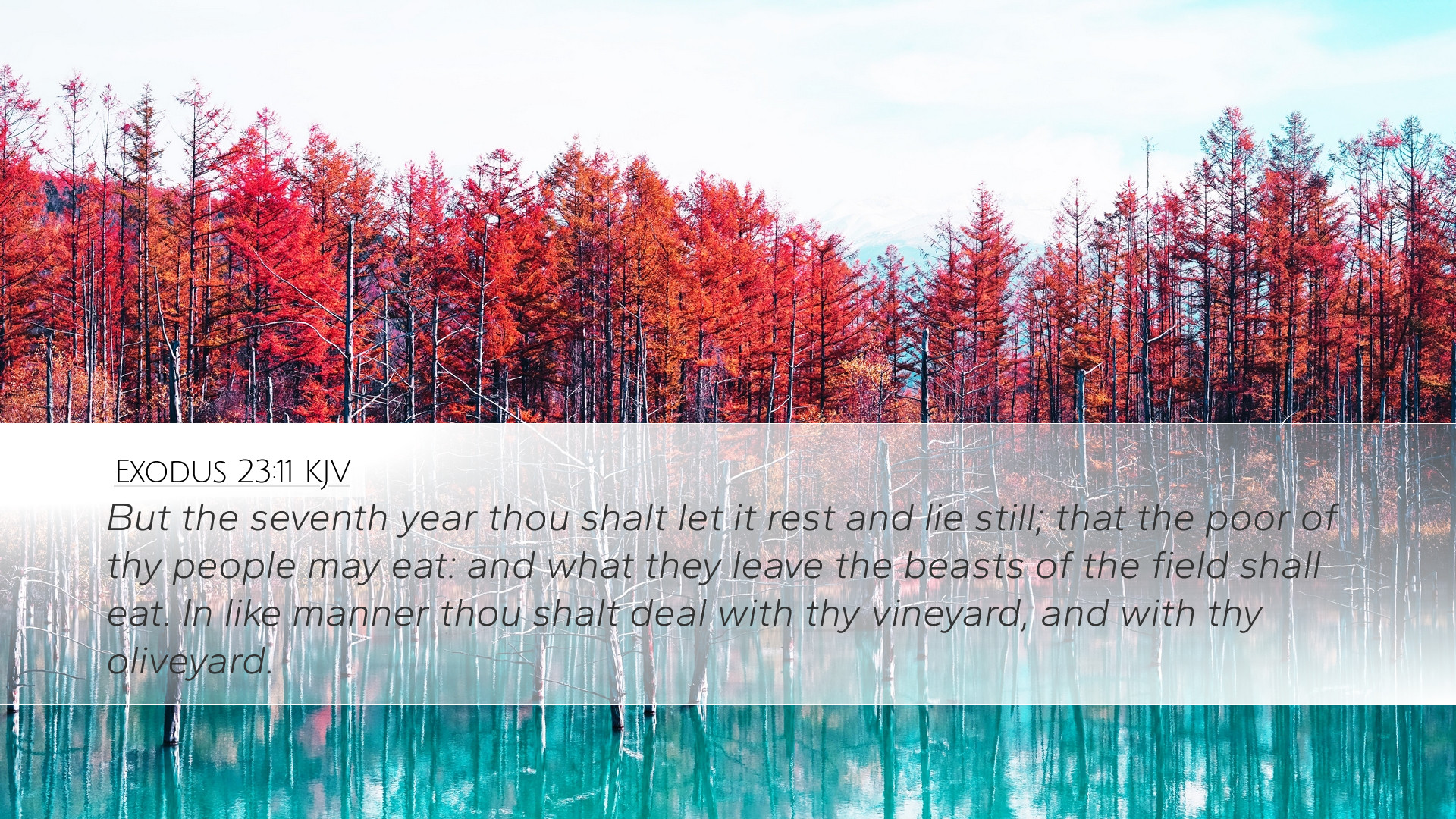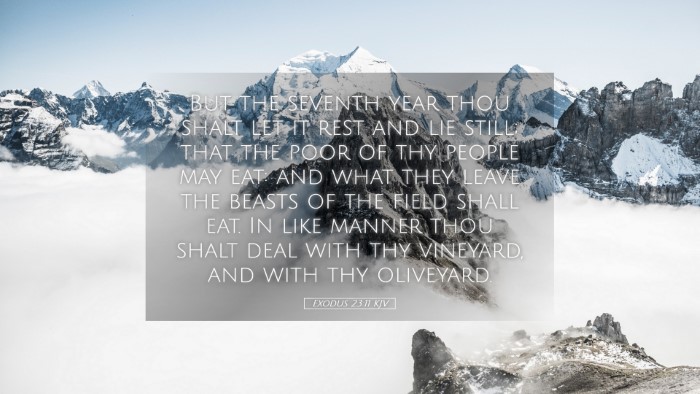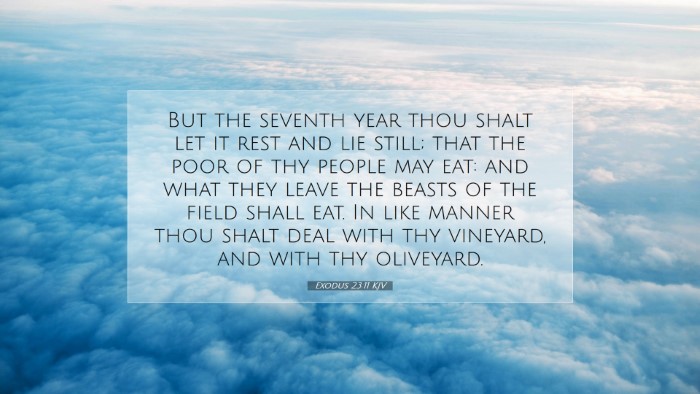Commentary on Exodus 23:11
Verse: "But the seventh year thou shalt let it rest and lie still; that the poor of thy people may eat: and what they leave the beasts of the field shall eat. In like manner thou shalt deal with thy vineyard, and with thy oliveyard."
Introduction
This verse from Exodus 23:11 is nestled within the broader context of God's commandments regarding justice, mercy, and the proper stewardship of the land. It highlights the importance of rest for the land every seventh year—a practice known as the sabbatical year, which not only served agricultural purposes but also had profound social and theological implications.
The Theological Significance
Divine Intent: The requirement to let the land rest reflects the rhythm of creation established by God. In Genesis, God Himself rested on the seventh day, thereby instituting a pattern for humanity. The Sabbath rest serves as a reminder that all creation belongs to God, and human beings are stewards rather than absolute owners.
Social Justice: This command specifically provides for the poor, signifying God's care for those in need. Allowing the poor to partake in the produce of the fields aligns with the principle of generosity and compassion that permeates the Torah. In this sense, the sabbatical year becomes a divine provision for equity and sustenance, ensuring that the marginalized have access to resources.
Insights from Public Domain Commentaries
Matthew Henry
Henry emphasizes the moral imperative behind the sabbatical law. He points out that the reason for allowing the land to rest is twofold: it serves to replenish the soil and to provide for impoverished members of society. By encouraging the wealthy to consider the needs of others, this commandment cultivates a community where generosity is normative. He also notes that this rest applies not just to the fields but extends to livestock, which signifies a holistic approach to well-being within the community.
Albert Barnes
Barnes elaborates on the practical applications of this commandment. He illustrates how the sabbatical year acts as a corrective measure against the exploitation of land and labor. The cyclical nature of letting the land rest has ecological benefits, promoting sustainability. In a theological context, Barnes sees this as a foreshadowing of the ultimate rest found in Christ, where grace provides for the spiritual needs of humanity. He further notes the significance of the sabbatical year as an expression of trust; landowners must rely on God's provision for their needs during the year of rest.
Adam Clarke
Clarke provides a historical lens through which to interpret the command. He remarks on the progressive social justice contained in this law, marking it as a distinctive characteristic of Israelite culture in contrast to neighboring nations. Clarke suggests that this practice was crucial for the cultural identity of Israel, emphasizing community responsibility over individualism. Moreover, he associates the sabbatical year with the themes of spiritual renewal and dependence on God, reinforcing that the true provider is the Lord who sustains all creation.
Practical Applications
This scripture remains relevant for contemporary Christian communities in several ways:
- Stewardship: The principle of letting the land rest can inspire modern ecological practices and sustainability efforts. Churches and organizations can lead in environmental stewardship that mirrors divine concern for creation.
- Community Support: Establishing programs that support the less fortunate within the community helps to fulfill the spirit of this commandment. Food banks, community gardens, and shared resources can reflect God’s provision.
- Rhythm of Rest: Encouraging individuals to observe rhythms of rest in their busy lives can lead to holistic health. Just as the land requires rest, so do the believers—inviting them to engage in spiritual rejuvenation through Sabbath practices.
Conclusion
Exodus 23:11 invites us to reflect deeply on the themes of rest, provision, and justice. The command for the land to lie fallow speaks volumes about God's concern for both creation and humanity. As we engage with this text, we are reminded that our practices, whether in agriculture, community service, or personal rest, ought to resonate with the heart of God—a heart bent towards mercy and provision for all.


